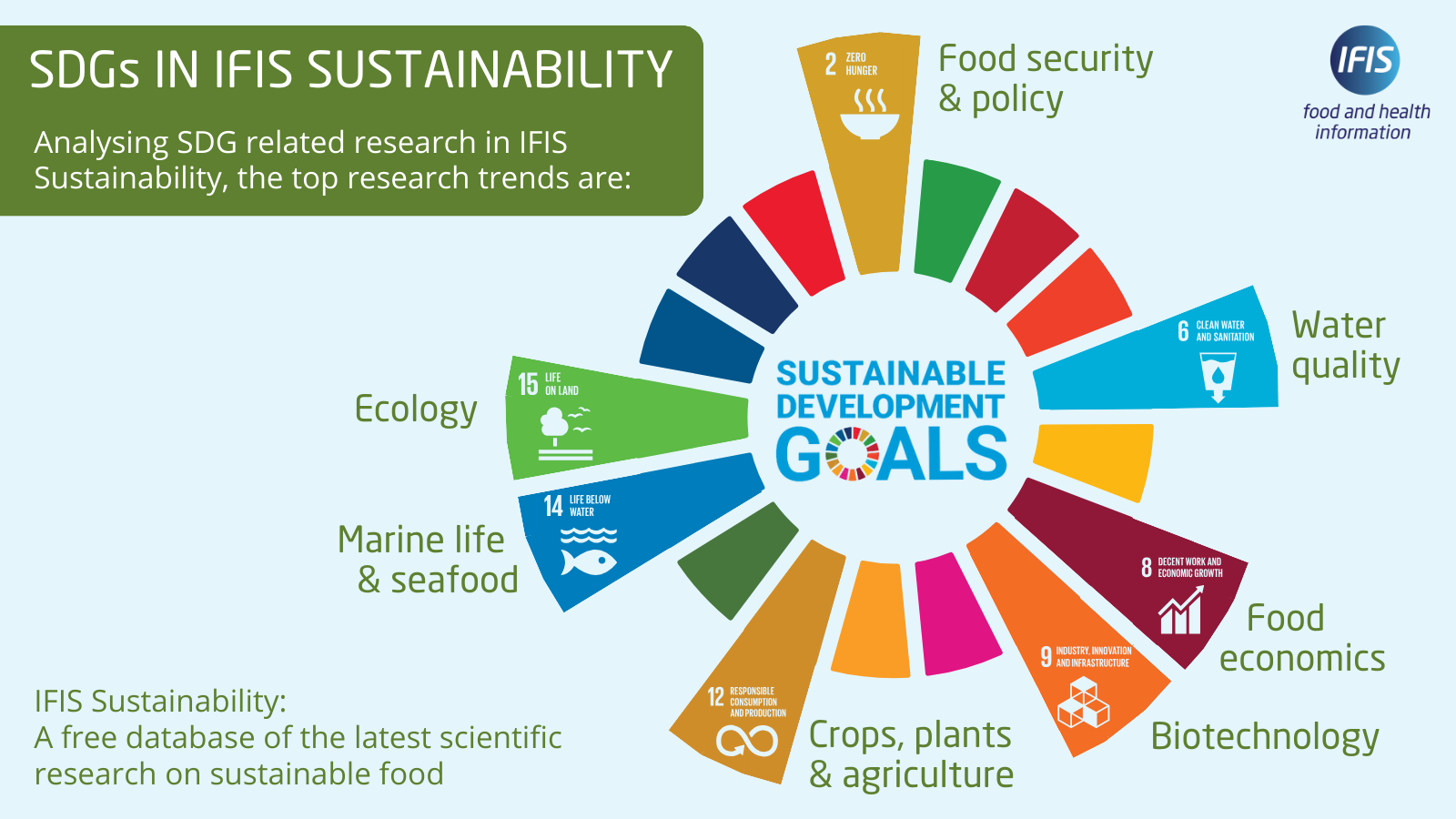As the food system grapples with a complex matrix of challenges, achieving the United Nations' Sustainable Development Goals (SDGs) requires a collective and multidisciplinary effort. Contributing to this endeavour is IFIS Sustainability, a groundbreaking Abstracting and Indexing (A&I) database designed to empower food innovators, researchers, policymakers, and industry professionals with the latest insights into sustainable food science.
The urgency of addressing global issues like hunger, environmental degradation, and economic inequality has never been more apparent. To navigate this complex landscape, a multidisciplinary and collaborative approach is essential.
With this in mind, here at IFIS Publishing we are proud to announce the launch of a new database that will provide a centralised hub for cutting-edge research that aligns with the SDGs.
- Zero Hunger (SDG #2):
IFIS Sustainability, with its focus on the Economics of Sustainability and Innovations in Agriculture, plays a pivotal role in achieving SDG #2 by offering practical solutions that ensure both economic viability and global food security.
- Clean Water and Sanitation (SDG #6):
Addressing SDG #6, IFIS Sustainability explores ecological concerns, sustainable agriculture, and water stewardship, contributing to responsible water management and sanitation practices and ensuring a healthier planet for all.
- Decent Work and Economic Growth (SDG #8):
Promoting SDG #8, IFIS Sustainability emphasizes the importance of Technological Advancements and Policy-Driven Sustainability, fostering economic growth and creating decent work conditions.
- Responsible Production and Consumption (SDG #12):
In line with SDG #12, IFIS Sustainability advocates for Responsible Production and Consumption through policy interventions and consumer-centric approaches, reducing waste and environmental impact.
- Life Below Water (SDG #14) and Life on Land (SDG #15):
Aligned with SDGs #14 and #15, IFIS Sustainability tackles ecological concerns and promotes sustainable agriculture to protect marine and terrestrial ecosystems, contributing to biodiversity preservation.
The Importance of an Interdisciplinary Approach
Solving global challenges demands a multidisciplinary effort that transcends traditional boundaries. IFIS Sustainability serves as a bridge, connecting diverse research themes to form a comprehensive understanding of sustainable food science.
Through its 10,000+ scientific records, IFIS Publishing draws together sustainability research from the past six months spanning diverse disciplines, from agronomics and life sciences to biochemistry and sociology. This will allow researchers to build on our collective knowledge and inspire global collaboration.
The challenges outlined in the SDGs are interconnected, demanding collaborative efforts for effective solutions. IFIS Sustainability invites researchers, policymakers, and industry professionals to collaborate, contribute, and leverage its database as a tool for informed decision-making.
Why Free Access Matters
Access to knowledge is pivotal in driving change. Recognizing this – and aligning with our mission as an educational charity to serve the information needs of the food science community – we are offering free access to the IFIS Sustainability database.
This move aligns with the ethos of collaboration and knowledge-sharing, ensuring that valuable insights are accessible to all stakeholders, irrespective of geographical or financial constraints.
In the journey towards a sustainable future, IFIS Sustainability stands as a beacon, guiding the way with its multidisciplinary insights aligned with the SDGs. By fostering collaboration and breaking down access barriers, this innovative database is not just a repository of knowledge but a catalyst for positive change, inspiring a collective effort towards a more resilient and equitable world.


